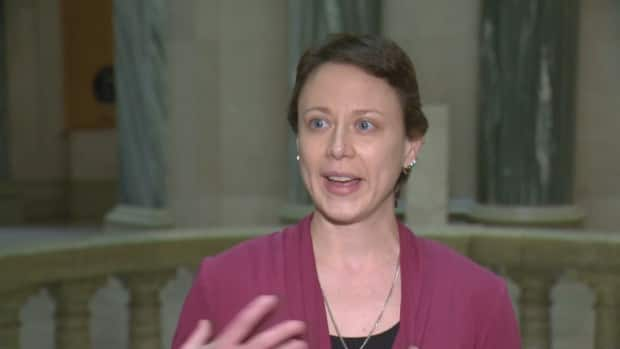Sask. child-care providers say they're scrambling to prepare after province rushed $10/day program rollout

Saskatchewan's Opposition NDP and several child care providers say the Saskatchewan Party government rushed a federal-provincial child-care agreement, and daycare workers are now scrambling to get their facilities ready.
The federal and provincial governments announced earlier this month that the goal of having regulated child care in the province cost an average of $10 a day for children under the age six will be achieved by April 1 — three years ahead of the original target of 2025-26, first set in August 2021.
The new pricing system applies to parents with kids under age six who are attending a licensed centre full time, but does not cover part-time, hourly and weekly child-care spaces.
Daycare workers said that as a result, providing those services will be difficult and expensive for them.
Part-time child care in Saskatchewan means nine days of child care per month. After those nine days, the child's family has to find another location for them.
But without a large supply of child-care centres, wait-lists can be years long.
The Opposition also said the accelerated $10 a day child-care rollout won't actually help parents get back to work.
During question period at the legislature Tuesday afternoon, Saskatchewan NDP Leader Carla Beck said child care providers were not consulted before the rollout was announced.
Now, child-care centres "may be forced to turn away families who rely on part-time spaces, and are looking at doing more with less," Beck said.
Premier Scott Moe blamed the lack of consultation on the federal government, but said the province is "able to continue to increase the number of spaces that we have been increasing for a number of years now," reaching nearly 23,000 spaces now.

Education Minister Dustin Duncan also criticized the federal government's role in the agreement.
"Because we're essentially running a child-care system and have a federal government that doesn't run child care insert[ing] themselves into this area … we're trying to reconfigure the plane while it's still in the air," he said.
"This has caused some challenges along the way."
But Beck maintained implementing the federal-provincial agreement three years ahead of schedule is ultimately bad for the economy.
"Pushing part-time parents out of child care spaces that don't exist is going to force more people, mostly women … out of their jobs," she said.
Meara Conway, the NDP's child care and early learning critic, said the province may not have intended to cause child-care issues, but they could have been avoided if the government consulted with providers before the announcement.
"Unless this government starts listening … [child-care providers] may be forced to reduce the total number of kids they can care for, which means more families will be scrambling over fewer spaces," said Conway.
More facilities, better wages needed: director
Brittany Pelletier, a home-care provider in Saskatoon, told reporters at the legislature Tuesday afternoon that the child-care agreement means that as of July 1, there will no longer be subsidized fees for drop-in and part-time child care spaces.
"Not only is this resulting in a loss of income for providers, but this will affect our ability to provide accessible care to more families who were utilizing part-time and drop-in spaces," she said, adding the change will cost her nearly $500 a month.
"There is no benefit to offering this service anymore," Pelletier said.

Nichole Kessel, director of Whitewood Wiggles and Giggles Childcare Centre, is only seven months into operating her business but has already had four employees leave.
Now, she's in a rush to implement new child-care regulations.
"We tried to ask for an extension, we tried to get them to listen to us, and ... no," said Kessel.
"To change a contract we need a month, and that's what we expect from families too," she said.
"But the government is saying all of a sudden in three weeks we have to change how we run our our facilities. It's not manageable, especially for Moosomin and Carnduff. They have run their facilities forever on an hourly basis. They don't even know where to start."
Kessel says many more child-care facilities need to be built, and early childcare educators need better wages and better access to training.
Duncan acknowledged there is a lot to work on, but said the move to $10 a day care was sped up because the province signed the federal child care agreement halfway through a fiscal year and didn't want to waste money.
"I don't think we can increase the number of spaces as quickly as I think people would like, because we obviously need a workforce [and] that is gonna take a lot of time," Duncan told reporters.
"And so if we would have focused more on that before we really worked hard to get to the $10 a day [agreement] … I think that would have satisfied a lot of people. But we probably would have left a lot more money on the table."


